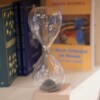Editor’s Note: Practical Matters is a new section that will occasionally appear that seeks to highlight how theology is being integrated into the overall rhetoric, conversations, and structure of the Christian college or university outside of the discipline or department of Theology, Christian studies, Religion, and so on. Timothy A. Gabrielson is Assistant Professor of Biblical Studies at Sterling College (Kansas).
The Need to Restore the Soul of the University
The litany of concerns facing colleges and universities is long. The fragmentation of higher education is a particularly urgent matter, not least because it hamstrings any attempt to articulate a clear purpose for college that would justify its expense and explain its apparent shortcomings. The problem is patent at large research institutions with tens of thousands of students of vastly different backgrounds and with an array of departments that may work at cross-purposes from each other, but it is no less present at liberal arts colleges with much smaller populations. This snapshot is all too common across America: Students experience the general education curriculum as an arbitrary list of courses to check off a list, professors do not communicate across departmental lines, and the administration does not set a clear character for the institution, besides a vague ambition to increase prestige, enrollment, or money.
Perry L. Glanzer, Nathan F. Alleman, and Todd C. Ream frame this issue as restoring a university’s “soul.”1 They chart how we got here, from the medieval ideal of a Christian university to the fractured American “multiversity” (part 1). At its inception, a “fateful decision,” one that would have “a tremendous influence on the original idea of the university,” was made to install theology as a distinct discipline among the other liberal arts (24). It began as the pinnacle of the academic tower, but since it was not the foundation, it was removable (chs. 1–2). The Enlightenment brought increased nationalization to European higher education, and with it, the marginalization of theology (ch. 3), and in time American schools also succumbed (chs. 4–5). By the mid-1900s, an integrated college with the goal of instilling a theologically-founded vision seemed like a quaint relic of a bygone age. Few colleges retained theology as a unifying agent. Some delighted in the freedom afforded by this lack of constraint. Those who did desire a common aim looked instead to “various secular sagas to hold together different parts of the university,” such as democratic ideals (109).
The solution Glanzer, Alleman, and Ream suggest for Christian institutions is that theology become the integrative “soul” of the college through cross-departmental dialogue (ch. 12).2 Uniquely, “theology…cannot rest easily within the confines of a singular faculty,” because it should “cultivate the wisdom needed to draw all creation back to God” (229). It needs to be “transdisciplinary” (230), able to “learn from other fields” (234), and, in the end, help the university become a university again by “demonstrating a unified understanding of knowledge and the world it claims to study” (238). Theology, on their accounting, cannot be a discipline unto itself.
A Strategy for Restoring the Soul of the University
Restoring the Soul calls theology to a high task. To accomplish it, one practical strategy that I initiated at Sterling College is “Theology+.” Sterling is a small (under 1000 students), liberal arts college in rural Kansas of Presbyterian heritage. Students come not only from Great Plains states, but also from major urban centers across America, with some international students, too. The faculty is required to sign a non-sectarian statement of faith. While there is no similar requirement for students, many are Christians, of various denominations, and attend Sterling for its faith commitment.
Theology+ is a series of quarterly talks that pairs one member of the Theology & Ministry Department with a member of another department. We find a topic that intersects both fields and then develop a focused question in common. Each faculty member answers that question in 15 minutes or so, according to his or her expertise. Ideally, this leaves 20 minutes for audience questions (for those on a 50-minute schedule), where synthesis can occur organically. At times, we have utilized a small-group reflection following the presentations, but most often we have turned directly to all assembled for their questions. Thus far, we have never had a shortage. Indeed, some audience members have lingered for more than an hour past the official end of the session.
The inaugural presentation, for example, was “Do We Have Free Will? Considerations from Theology + Mathematics.” I surveyed the classic biblical debates about predestination, and Pete Kosek discussed issues related to scientific determinism, probability, and whether quantum mechanics allows for human autonomy outside a closed system of causality. Obviously, given the time allotments, these topics receive the lightest touch possible. The presentations are intended to give just enough specialist information to prompt thoughtful dialogue. The centerpiece is the Q&A. Two years in, we have mostly partnered with faculty in the humanities and the sciences, but we have also worked with business (“Should We Redistribute Wealth?”) and athletics (“Sport: Idol or Worship?”)—in the latter case, including a coach as a third participant.
We have been gratified with the results. There has always been a good mix of students, faculty, and administration, as well as community members. The numbers have fluctuated from 25 to 60—the latter figure approaching ten percent of the college’s population. More importantly, the discussions have been fruitful. When I queried the faculty who presented, they gave a robust “yes” to the question of whether the talk furthered the audience’s understanding of the topic (78.4; 0 = “not at all” / 100 = “absolutely”).3 They also reported that they themselves learned something (74.6), a mark nearly as high as for the audience. Indeed, in a free answer section of the survey, four professors (of seven non-theological faculty) specified their own integration of faith and learning as a benefit.
The payoff for the work involved is high. Faculty affirmed that it was absolutely worth their time (at 98.7!). We present on what we have already studied, and thus our efforts are directed not at research but at making complex ideas quickly digestible and at coordinating with the other presenter to ensure a base level of cohesion. Theology+ is, by design, a first step, tentative and experimental. This entails a tradeoff. On the one hand, two respondents noted the “compressed” (in the words of one) presentation time as a drawback. The other spoke of a difficulty “truncating an extremely in-depth topic that could be discussed for days into a brief synopsis.” On the other hand, two saw preparation time as a challenge given that faculty are “swamped” and “wear multiple hats” at Sterling.4 I have erred on the side of making Theology+ sessions brief lest they become cumbersome to presenters and depress faculty involvement. On average, participants spent a little under one workday (7.4 hours; high: 20 / low: 1.5) total in preparing and presenting.
Asked to list strengths of Theology+, nine of the ten respondents gave some combination of three answers: it presents academic topics of interest to students (six responses); it provides a theological perspective on various disciplines (five); or it is interdisciplinary (three). One said, “Being in an industry that is dominated by secularism…it is imperative that Christian higher education institutions instill graduates with a strong Christian worldview as they enter the industry.” Another called it “productive in the pursuit of a clearer vision of my personal and our corporate theology,” and a third praised it as “one of the greatest recurring events we have at Sterling.”
Theology+ remains relatively new. We had a full run of sessions in 2018–2019, but our second year was cut short by the coronavirus. Still, even with six talks, several lessons have already presented themselves. I will note two. (1) Recruitment:While we welcome interest from other professors, our department holds ultimate responsibility for planning the year and recruiting fellow faculty. The theology department must be committed. (2) Topics: Not surprisingly, we have found that visible and pressing issues attract bigger crowds. Our largest audience came for a talk about evolution and Genesis, and the level of energy matched the attendance numbers. That said, sessions with fewer attendees have sometimes had the richest discussions. An example here was, “Is Plagiarism Wrong? Considerations from Theology + Literature.” My brief overview of the “Synoptic Problem” (which indicates verbatim copying among the New Testament Gospels) was serviceable, but Rachel Griffis’s portion generated significant discussion.5 Our goal over a year is to have subjects that are already popular and others that are novel.
If your college is like Sterling, Theology+ may be transferable exactly as I have described it here. Larger universities allow for more specialization; cross-disciplinary relationships might therefore require deliberate cultivation prior to an initiative akin to this one. Nonetheless, a series like Theology+, tailored to its context, is an easy, beneficial strategy to restore the “soul” of any Christian institution of higher learning.6
Cite this article
Footnotes
- Perry L. Glanzer, Nathan F. Alleman and Todd C. Ream, Restoring the Soul of the University: Unifying Christian Higher Education in a Fragmented Age (Downers Grove, Ill.: IVP Academic, 2017). Their concept of “soul” concerns a college’s identity, story, purposes, and moral ideals (5). In part 2 of their book, they document many manifestations of this problem.
- The rest of part 3 applies this to professors, disciplines, cocurricular activities, and administration.
- Survey conducted anonymously (7/8/2020–7/16/2020). All ten presenters (not counting myself) were kind enough to respond. All references to faculty views below derive from this questionnaire.
- A fifth respondent was also concerned about time, but I am uncertain whether it was suf-ficient time to prepare or to present.
- 5Sterling is not soft on academic misconduct. Rather, Rachel Griffis questioned the indi-vidualistic and consumeristic assumptions that we own words. Her talk was a précis of “Plagiarism as the Language of Ownership: Aligning Academic Liturgy with Christian Virtue,” Christian Scholar’s Review 49.2 (2020): 109–126.
- I would like to thank my colleagues at Sterling College in Theology & Ministry, who have partnered with me in running Theology+: Tom Bronleewe, Glenn Butner, and Roy Millhouse. I would also like to thank faculty members from other departments who have presented or agreed to present: Adam Hill, Amy Kosek, Pete Kosek, Hans Nickel, Tim Thorpe, Mark Watney, and Randi Wise. John Harding, head volleyball coach, also presented. I owe special thanks to Rachel Griffis, who not only has presented, but organized a faculty group reading Restoring the Soul of the University, which occasioned “Theology+.”























